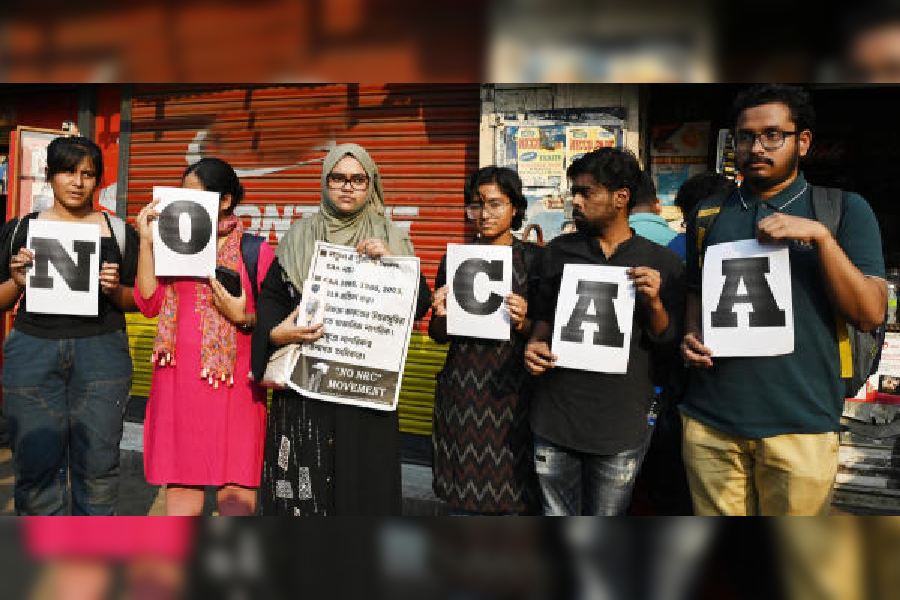A 30-year-old woman ate sehri, the morning meal before sunrise during Ramzan, around 4.10am on Tuesday. She ate again during iftar, around 6pm.
In between, despite fasting and not even drinking water, Shafqat Rahim walked 4km on a sultry afternoon, shouting slogans and waving placards. She took part in a protest march that condemned the Narendra Modi government’s renewed thrust on the citizenship matrix.
“I am on fast. But I am here. Because this is about our lives. This is about our liberty, that is protected by our Constitution,” said Rahim, who teaches in a primary school and has a master’s in law from Kolkata University.
The Celsius was around 32 degrees but the humidity made the RealFeel soar to 37.
The Modi government on Monday notified the rules for the implementation of the controversial Citizenship (Amendment) Act or CAA, which attempts to fast-track Indian citizenship for refugees and asylum seekers from Pakistan, Afghanistan and Bangladesh, except Muslims.
The CAA has been accused of violating the secular principles enshrined in the Constitution. The Monday notification has been described by critics as another polarising plank in the run-up to the general election. Many of them also highlighted the fact that the decision was announced on the eve of Ramzan.
“Why did they announce it on Monday, on the eve of Ramzan? Because the CAA is exclusionary. Coupled with the National Register of Citizens (NRC), it wants to turn Muslims into second-class citizens. Even in the timing of the announcement, there was a cruel message. The powers that be are hoping that many people will be unable to protest during this time,” said Sarmistha Roy, a dentist and part of the No-NRC Movement that organised Tuesday’s protest march.
Critics have alleged that the new citizenship matrix aims to shield non-Muslims but rob millions of Muslims of their citizenship through a countrywide update of the National Register of Citizens (NRC). Such fears had triggered nationwide protests in 2019-20.
Kolkata had also seen a wave of protests — led by common people — between December 2019 and March 2020. The outbreak of Covid abruptly halted the protests.
In response to the CAA notification, multiple organisations have lined up a series of protests in the city.
Four years ago, the protests were largely organic, without any political backing, and saw participation of people from diverse faiths and walks of life. Tuesday’s rally did not have a huge gathering. Around 200 people had turned up, the organisers said. But it was vibrant and had the same spirit.
Debabrata Roy, 62, a retired tax consultant, expressed the fear that the NRC would be implemented after the elections. “These laws have two objectives, create a division and instil fear in people,” said Ray.
The participants met at Moulali and walked to the Park Circus seven-point intersection, via AJC Bose Road and Park Street, covering over 4km.
“Everyone who is a voter, who is working hard to earn a living, is a citizen of this country. Her labour, her hard work was key to the GDP growth that the government is showcasing,” said Aryan Agrahari, a former student of Presidency University and member of the Inquilabi Students’ Unity.
